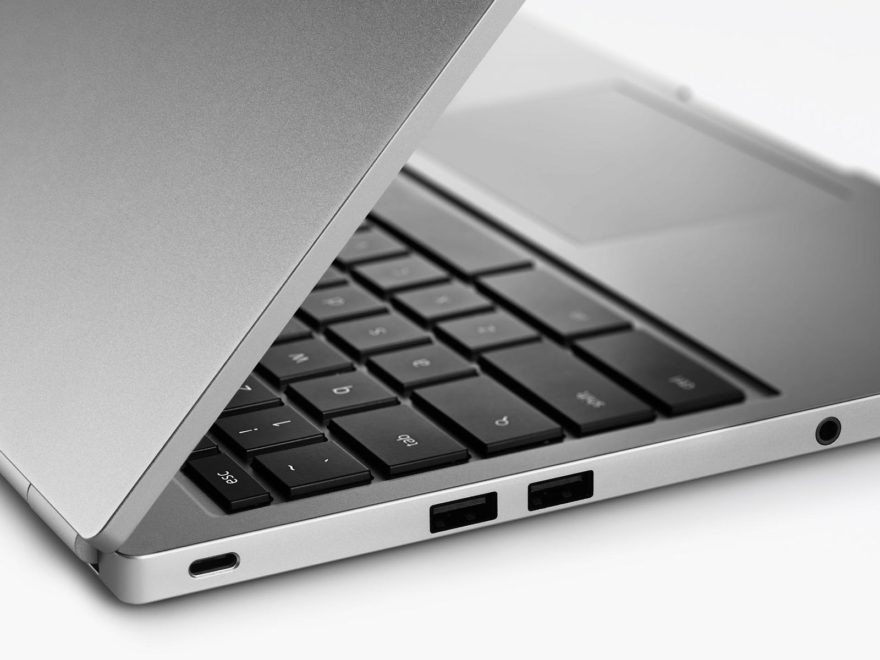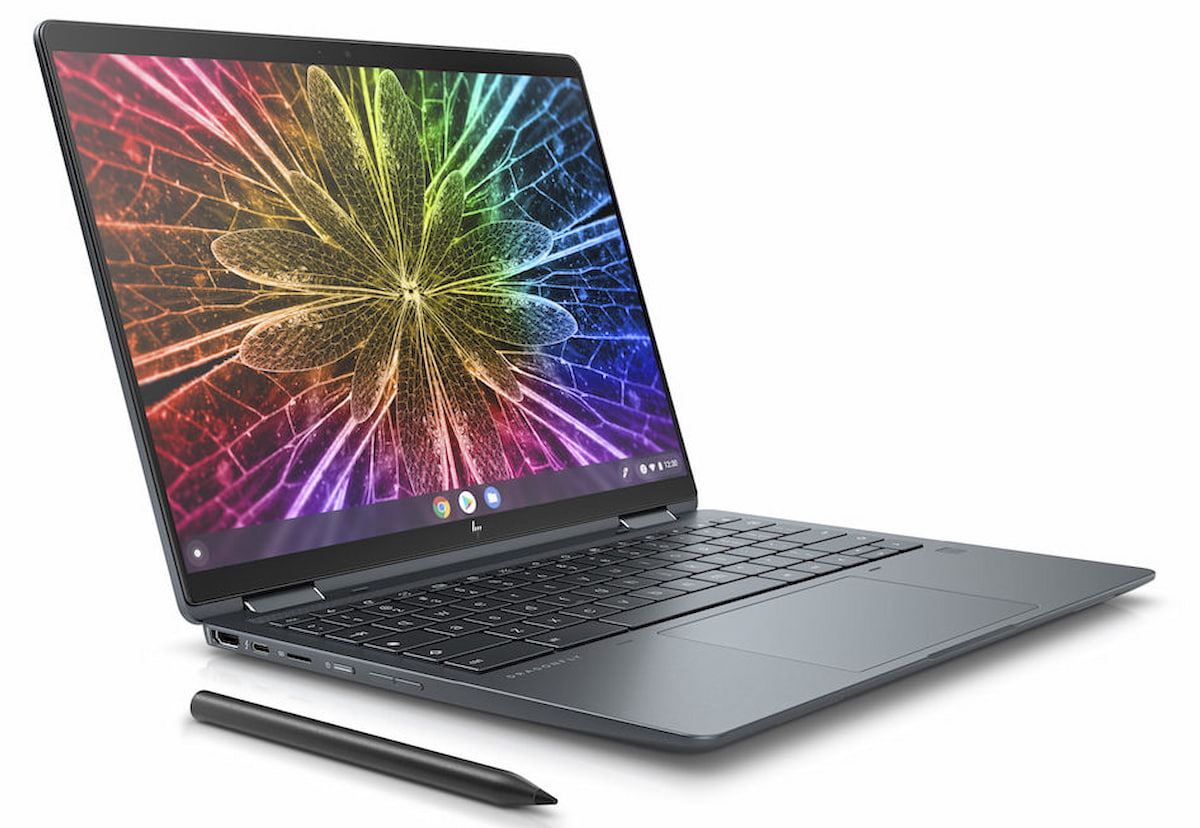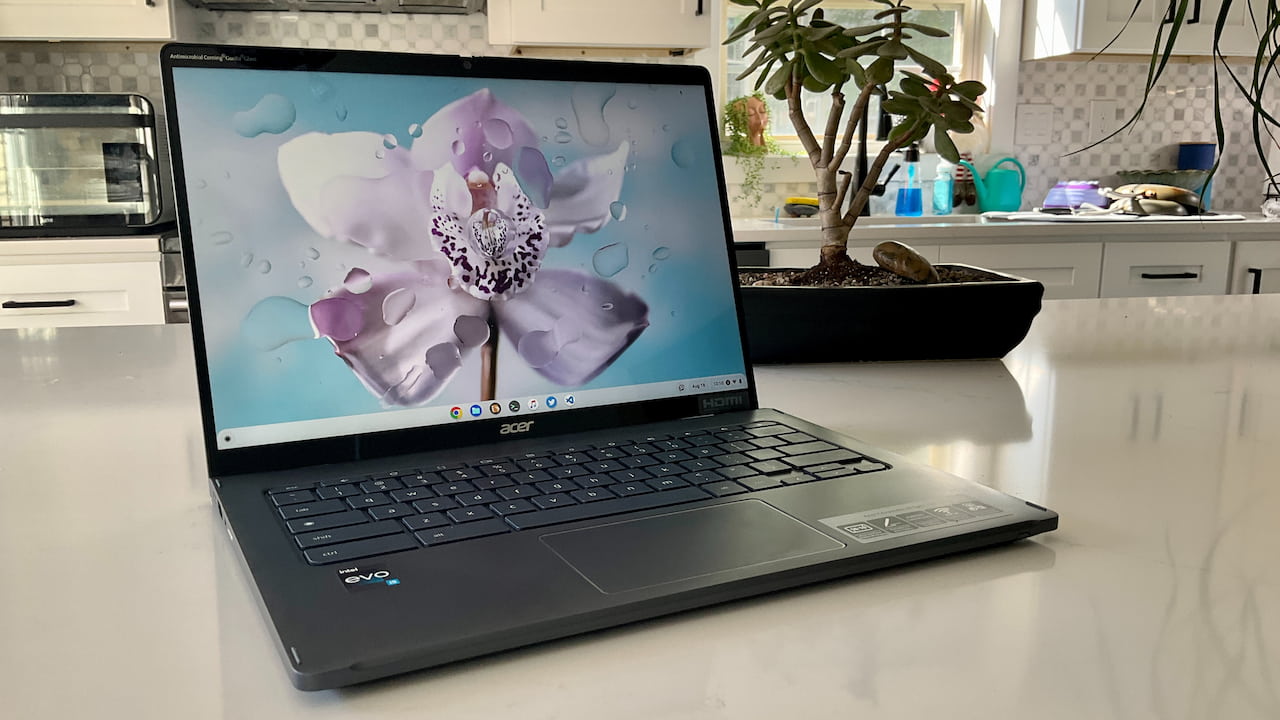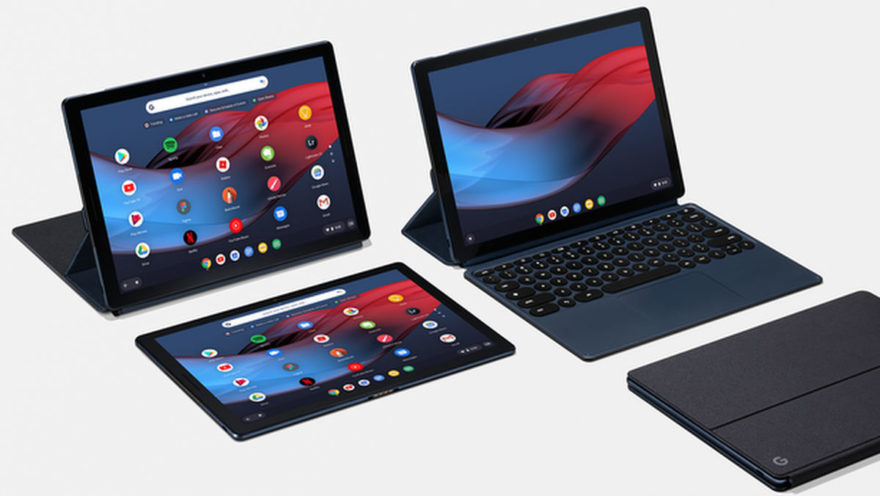After earlier suggesting a new model was in the works for 2023, Google has reportedly canceled its next Pixelbook. That’s according to a person familiar with the matter, speaking to The Verge. I’ve owned all five prior Google Chromebooks so while I’m sad from a nostalgic point, I can live in a world without Pixelbooks. You can too.
Don’t get me wrong: Google’s laptop designs have generally been top-notch, although you paid a premium for that.
Starting with the original Chromebook Pixel, Google provided its purest vision for how a Chromebook should look and feel to use. One model also came with an embedded LTE radio, allowing for working nearly anywhere.

But I come back to what I said last year when we found out a new Pixelbook wouldn’t be seen for a while yet. I pointed out the main purpose of the Pixelbook line from 2013 through roughly 2019:
Chromebook users really didn’t have much choice when it came to high-end laptops running Chrome OS. You pretty much had to choose a Google-branded Chromebook Pixel or Pixelbook to get the best display, the latest processor, and a choice of the most memory.
That’s not the case today. In fact, it’s quite the opposite as Google’s major hardware partners are starting to churn out high-end Chromebooks on an annual basis. Sure, Google’s industrial design from the Pixelbook isn’t a major influence on these. But the overall and primary concept of a Chromebook that breeze through any task you throw at it? That’s there in spades through a number of choices. And I’m willing to bet most of those choices cost less than a new Google Pixelbook would.
If you want clean design in a lightweight ChromeOS laptop, along with an exclusive haptic trackpad and the same 3:2 display aspect ratio of a Pixelbook, it’s there in the HP Elite Dragonfly Chromebook.

Care less about looks and just want the best performance bang for your buck? Yesterday, I highlighted that option with my review of the Acer Chromebook Spin 714.

Other options that I haven’t tried yet (one is on the way) are the Asus Chromebook Flip CX5 and Lenovo ThinkPad C14 Chromebook. Like the previously mentioned duo of devices, these offer 12th gen Intel Core processors, plenty of memory and storage, and their own unique takes on Chromebook features. The full specs and prices of all four 12th gen Intel Chromebooks are in this handy chart for you to compare.
While I don’t wish to see Google cease the Pixelbook line, I can certainly understand why it would. Chromebooks are already a niche market and the Pixelbooks are niche products in that market. There’s not a ton of upside or expected growth here. And when your hardware partners are delivering solid alternatives already, maybe you just step back and let them do their thing.
I’m actually more disappointed that Google got out of the ChromeOS tablet market with the launch and then the death of the Pixel Slate. I think there’s more innovation to be had in ChromeOS tablets with detachable keyboards than a general laptop that runs ChromeOS.

With the Slate launch, the software wasn’t quite ready for the hardware. It was a tactical mistake to release the Pixel Slate in such a state because it soured the entire market for the product. Sadly, it was only one or two software updates away from being a fantastic device. I still use mine for content consumption in a laid-back mode.
And it looks like my dream of a customized Tensor-powered Pixelbook isn’t happening either. I’ve wondered how some special silicon optimized for ChromeOS and web work would be, mainly because I think that would be a game changer. Improved performance for the core use cases with the added benefit of less power draw and therefore more battery life.
But it appears my dream is now just that. A dream.
Instead, we’re “stuck” with high-end options we didn’t have during the Pixelbook days that cost half as much as some of the Pixelbook models.
I’d say that’s not a bad problem to have. And as much as some of us loved the Google-branded Chromebooks, I still say we’ll survive without the Pixelbook.


9 Comments
Will there be an Android tablet produced by Google instead of being forced to buy Samsung Lenovo ASUS Acer which don’t update the Android operating system quickly yearly and monthly security updates.
People at Google HQ just don’t want to have to deal with all the incoming AUE 8 years complaints themselves … they’ve just shipped that issue to Acer, HP etc…. When AUE 8 hits mainstream users Chromebooks are finished …
@Kevin:
I disagree with Chromebooks being niche. Linux PCs are niche. PC gaming handhelds are niche (or at least they were before the Steam Deck). But chromeOS reached parity with macOS in market share back in 2019. Yes, Pixelbooks are niche, but because the last GOOD Pixelbook came out in 2017 when Android was in beta and before Linux. Since then Google released the very misguided Pixelbook Go and the outright failure Pixel Slate. Another problem: Pixel and Pixelbook devices used the same dual core “Y” CPUs as the MacBook Air, which cost more but performed less. The Pixelbook that would have made a difference – with a 10th gen mainstream Intel CPU and an AMD discrete GPU for 2020 – was delayed due to the pandemic and then cancelled because Google decided to copy the M1 MacBook Air instead of the Intel MacBook Pro. But either Pixelbook that we never got would have been the best selling Pixelbook by far.
Also, I disagree with the idea that Pixelbooks aren’t needed because other OEMs are releasing good Chromebooks. The reason: for HP, ASUS and Acer, ChromeOS takes second fiddle to Windows devices that get the best components first. For Lenovo and Samsung, ChromeOS comes in third to Windows and Android. Google was the only manufacturer with the incentive to focus their best efforts on Chromebooks.
Want an ARM Chromebook with anything better than a Snapdragon 7c SOC, an Intel Chromebook with a Core i7 CPU or an AMD Zen 3 Chromebook at all without having to go to the manufacturer’s website or deal with some Amazon reseller? The best way for this to happen is always going to be if Google put those components in a Pixelbook. And now since Google isn’t going to build an i7 Chromebook with 32 GB RAM for programmers, an ARM Chromebook with a real CPU and 5G connectivity for on the go workers or an AMD Zen 3 gaming-centered device around Steam, Android and cloud games then why should third parties change from their “generic under $400 devices for students and scattershot models with very limited quantities for everything else” strategy?
And this was shaping up to be such a promising era: Steam support went official, Chrome OS Flex was released, Alder Lake devices were released with Raptor Lake on the way, AMD Chromebooks with RDNA 2 graphics, and there has even been mentions of discrete GPU support in the Gerrit (likely Intel Arc) as well as possibly Qualcomm Snapdragon 8c Chromebooks (made available because Qualcomm wants to use Nuvia for Windows on ARM). But instead of getting more steps forward, we get this huge step back.
I agree that now we have other manufacturers shipping top-spec machines, like the Dragonfly on which I’m typing this.
What I think we’ve lost is the presence of an opinionated manufacturer who is going to make something elegant.
The Dragonfly is clearly the best device right now. But the fans keep spinning up and down (with utilization at 10%), the screen sits a bit crooked on the hinges, it has ugly lights and labels around it, it doesn’t match the specs that I ordered, HP claims the matching digital pen doesn’t exist… ugh.
I miss my Pixelbook Go’s solid, ultra-lightweight design, the amazing keyboard, and just the quality and minimalism of it. If Google would ship that device again with updated internals, I’d buy it in a heartbeat.
It’s very discouraging to me that they’ve thrown in the towel. I may return to a Mac for the hardware, even though I prefer ChromeOS.
Google only cares about Chrome (Browser or OS) because it helps maintain their search monopoly .. They have no long run plan / strategy technology wise or marketing wise all decisions stem from maintaining the search monopoly. They have little interest in being an OS or hardware maker. That could change but it doesn’t seem so yet.
Apple is so far ahead with performance, battery life and cooling on the M1 platform that I bet Google decided a Tensor Pixelbook just couldn’t compete. The 2022 Acer Spin 513 with ARM was a good attempt except for the terrible audio experience. The Dragonfly, albeit nice, is in Mac price territory, so I will pass on it and sit on the sidelines and jump in when the M3 Macs introduce a 3nm chip in about a year. I don’t see myself ever buying another laptop\tablet with an Intel chip until they can compete on battery life and temperature. Also, do the Chromebook makers know there a 1 TB and 2 TB SSDs out there? How about 16GB and 32GB of RAM? I loved my Chromebook Pixels and Pixelbook, but it looks like the end of an era for me, and I will stick to the Apple camp for now.
I disagree that Google should not keep developing the Pixelbook. Having a full ecosystem is one of the benefits of Google having its own device. I’m not sure about bloatware as I have only had PB’s for the last 5 years but having a well spec’d Chromebook is rare in the consumer market.
You’re touting the Dragonfly, but getting above an i3 is really expensive and backlogged. Having a reliable retail vendor for support and having Google on the hook for bug fixes and updates also is disappointing. As you mentioned, Acers are ugly, Dragonflys are hard to find and/or expensive.
The promise of Tensor delivering desktop class power seems to have failed but honestly my i5 PB Go is one of the quietest laptops I’ve ever owned. Google did too good a job, but just priced them wrong. I find it amazing that as wealthy as this company is they couldn’t give you a MacBook quality device for $999.
Let’s be honest: Google isn’t, and has never been, a hardware company. Sure, they’ve pumped out some Android-powered smartphones and a few Chromebooks (still have the original Pixelbook, and stand by the opinion that it’s one of the better Chromebooks ever made). But, as you pointed out, firms that are in the hardware business are putting out some impressive, higher-end Chromebooks.
I would have loved to have seen the Pixelbook that was under development, though. Ah, well …
Until Google provides updates longer term it isn’t worth it investing in looks and feel. Give me a functional Chromebook with a decent screen and I’m good to go.